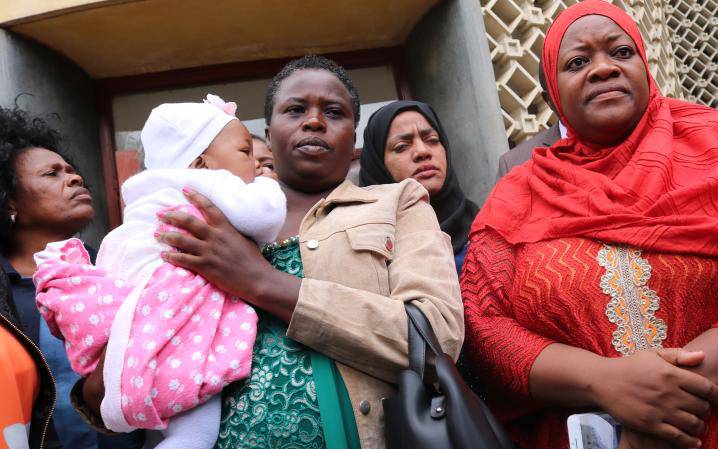×
The Standard e-Paper
Kenya’s Boldest Voice

Kwale Woman Representative Zulekha Hassan(R) with her five month old baby held by Laikipia North MP. Sarah Korere accompanied by other women MPs after she was ejected from the chamber after sneaked in her baby at Parliament on August 7, 2019. [Boniface Okendo,Standard]
Kwale Woman Representative Zulekha Hassan yesterday walked into the National Assembly with a five-month-old baby, paralysing House business for more than 20 minutes.